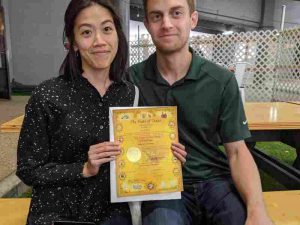Tesla CEO Elon Musk indicated that his company had already started work on the production of medical ventilators needed to treat severe cases of the coronavirus.
But he wrote on Twitter that based on current trends — citing a sharp drop in China’s infection rates — that new cases of the disease that is spreading around the world, COVID-19, will be “probably close to zero” in the U.S. by the end of April, meaning the current ventilator shortage may not last long.
“We’re working on ventilators, even though I think there will not be a shortage by the time we can make enough to matter,” the billionaire wrote.
Musk first indicated yesterday that he could potentially shift some company resources to help make the breathing aids, as governments and health authorities warned supplies could run dry if patients continued to need hospital treatment due to severe COVID-19 symptoms.
“We will make ventilators if there is a shortage,” he wrote, indicating his companies could soon help. “Tesla makes cars with sophisticated hvac systems. SpaceX makes spacecraft with life support systems. Ventilators are not difficult, but cannot be produced instantly,” he noted.
One person who responded to the tweet was New York Mayor Bill de Blasio, who said yesterday his city had recorded 3,615 positive cases of COVID-19 and at least 22 deaths.
Responding to Musk, Mayor de Blasio wrote, “New York City is buying! Our country is facing a drastic shortage and we need ventilators ASAP — we will need thousands in this city over the next few weeks. We’re getting them as fast as we can but we could use your help!”
Musk replied, “Sounds good, we will connect with your team to understand potential needs.” A time scale for production has not been revealed. Tesla did not respond to a request for comment.
Sounds good, we will connect with your team to understand potential needs
— Elon Musk (@elonmusk) March 19, 2020
Globally, the COVID-19 outbreak has infected more than 244,000 people. More than 10,000 people have died from the disease, while more than 86,000 people have recovered, tracking data suggests. There have been more than 14,000 cases to date in the U.S., with the death toll now surpassing 200.
The new virus — which first surfaced in the Chinese city of Wuhan last December before spreading worldwide — has shaken the financial markets and stalled businesses in a variety of industries.
But Musk suggested on Twitter that his facilities in China have not been drastically impacted. “China is operating normally across hundreds of suppliers and all of Tesla Shanghai,” he wrote.
He previously downplayed the response to the outbreak, tweeting “the coronavirus panic is dumb” and “fear is the mind-killer.” He has continued to warn against overstating its impact, yesterday writing, “My guess is that the panic will cause more harm than the virus, if that hasn’t happened already.”
World Health Organization advice for avoiding spread of coronavirus disease (COVID-19)
Hygiene advice
- Clean hands frequently with soap and water, or alcohol-based hand rub.
- Wash hands after coughing or sneezing; when caring for the sick; before, during and after food preparation; before eating; after using the toilet; when hands are visibly dirty; and after handling animals or waste.
- Maintain at least 1 meter (3 feet) distance from anyone who is coughing or sneezing.
- Avoid touching your hands, nose and mouth. Do not spit in public.
- Cover your mouth and nose with a tissue or bent elbow when coughing or sneezing. Discard the tissue immediately and clean your hands.
Medical advice
- If you feel unwell (fever, cough, difficulty breathing) seek medical care early and call local health authorities in advance.
- Stay up to date on COVID-19 developments issued by health authorities and follow their guidance.
Mask usage
- Healthy individuals only need to wear a mask if taking care of a sick person.
- Wear a mask if you are coughing or sneezing.
- Masks are effective when used in combination with frequent hand cleaning.
- Do not touch the mask while wearing it. Clean hands if you touch the mask.
- Learn how to properly put on, remove and dispose of masks.
- Clean hands after disposing of mask.
- Do not reuse single-use masks.



















